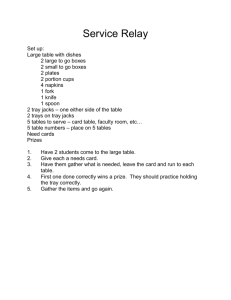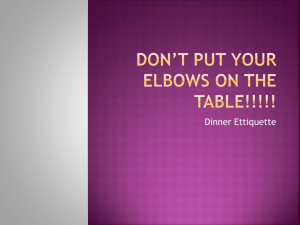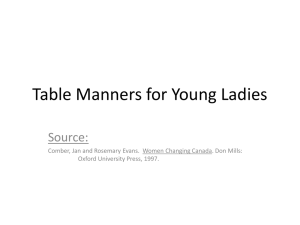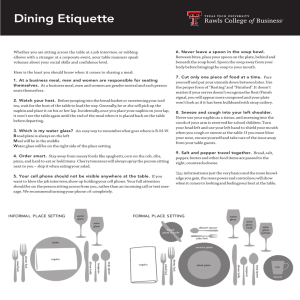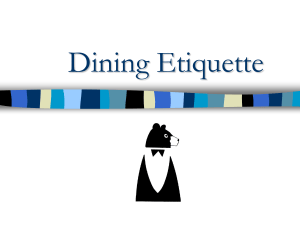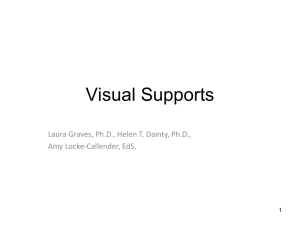Dining Etiquette
advertisement
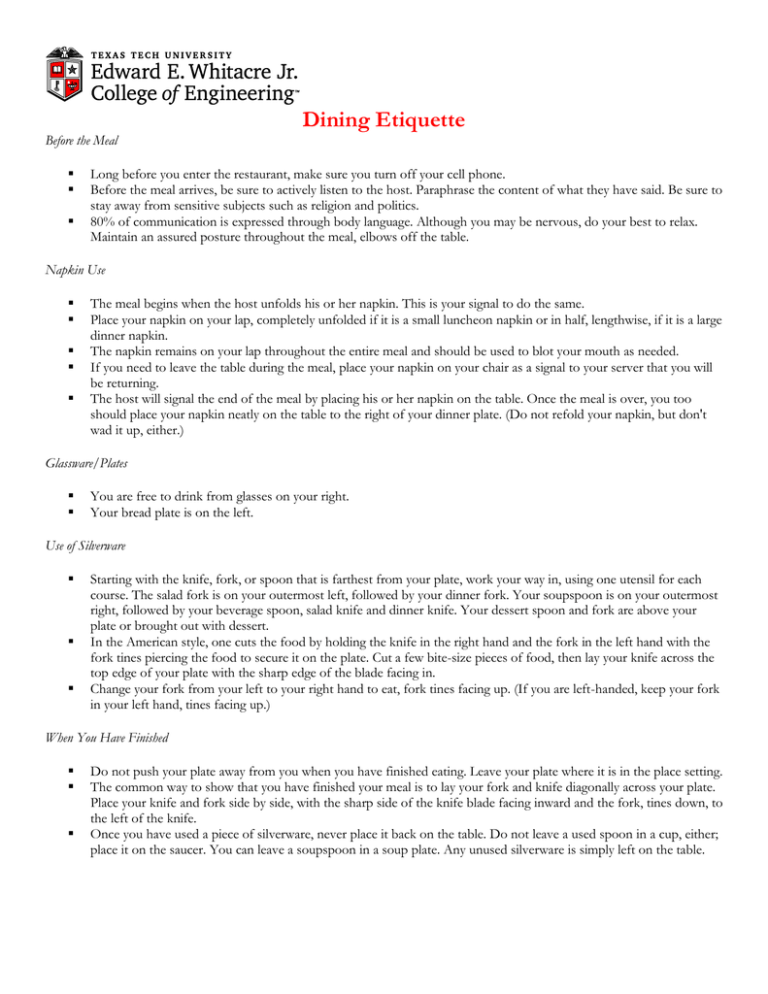
Dining Etiquette Before the Meal Long before you enter the restaurant, make sure you turn off your cell phone. Before the meal arrives, be sure to actively listen to the host. Paraphrase the content of what they have said. Be sure to stay away from sensitive subjects such as religion and politics. 80% of communication is expressed through body language. Although you may be nervous, do your best to relax. Maintain an assured posture throughout the meal, elbows off the table. Napkin Use The meal begins when the host unfolds his or her napkin. This is your signal to do the same. Place your napkin on your lap, completely unfolded if it is a small luncheon napkin or in half, lengthwise, if it is a large dinner napkin. The napkin remains on your lap throughout the entire meal and should be used to blot your mouth as needed. If you need to leave the table during the meal, place your napkin on your chair as a signal to your server that you will be returning. The host will signal the end of the meal by placing his or her napkin on the table. Once the meal is over, you too should place your napkin neatly on the table to the right of your dinner plate. (Do not refold your napkin, but don't wad it up, either.) Glassware/Plates You are free to drink from glasses on your right. Your bread plate is on the left. Use of Silverware Starting with the knife, fork, or spoon that is farthest from your plate, work your way in, using one utensil for each course. The salad fork is on your outermost left, followed by your dinner fork. Your soupspoon is on your outermost right, followed by your beverage spoon, salad knife and dinner knife. Your dessert spoon and fork are above your plate or brought out with dessert. In the American style, one cuts the food by holding the knife in the right hand and the fork in the left hand with the fork tines piercing the food to secure it on the plate. Cut a few bite-size pieces of food, then lay your knife across the top edge of your plate with the sharp edge of the blade facing in. Change your fork from your left to your right hand to eat, fork tines facing up. (If you are left-handed, keep your fork in your left hand, tines facing up.) When You Have Finished Do not push your plate away from you when you have finished eating. Leave your plate where it is in the place setting. The common way to show that you have finished your meal is to lay your fork and knife diagonally across your plate. Place your knife and fork side by side, with the sharp side of the knife blade facing inward and the fork, tines down, to the left of the knife. Once you have used a piece of silverware, never place it back on the table. Do not leave a used spoon in a cup, either; place it on the saucer. You can leave a soupspoon in a soup plate. Any unused silverware is simply left on the table.
